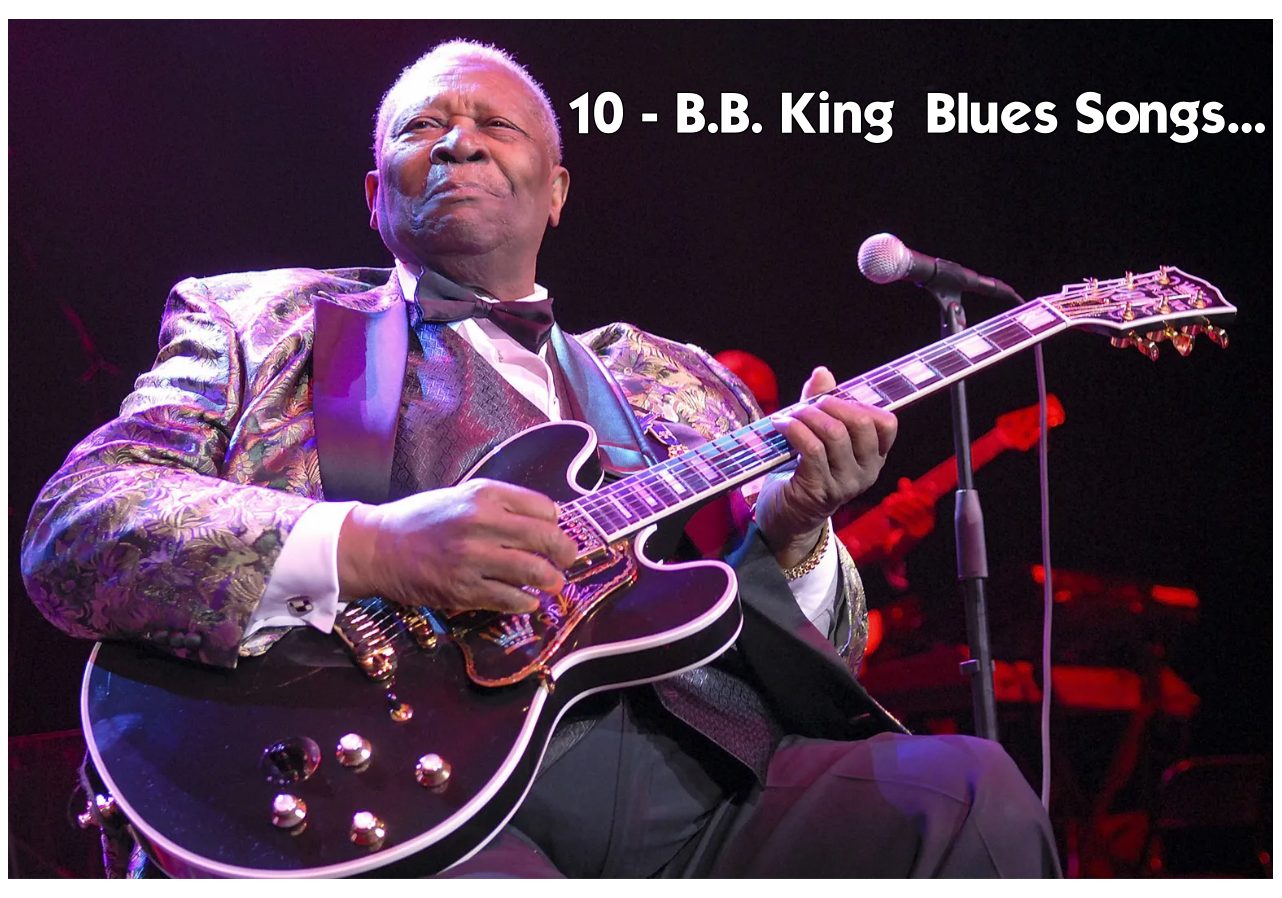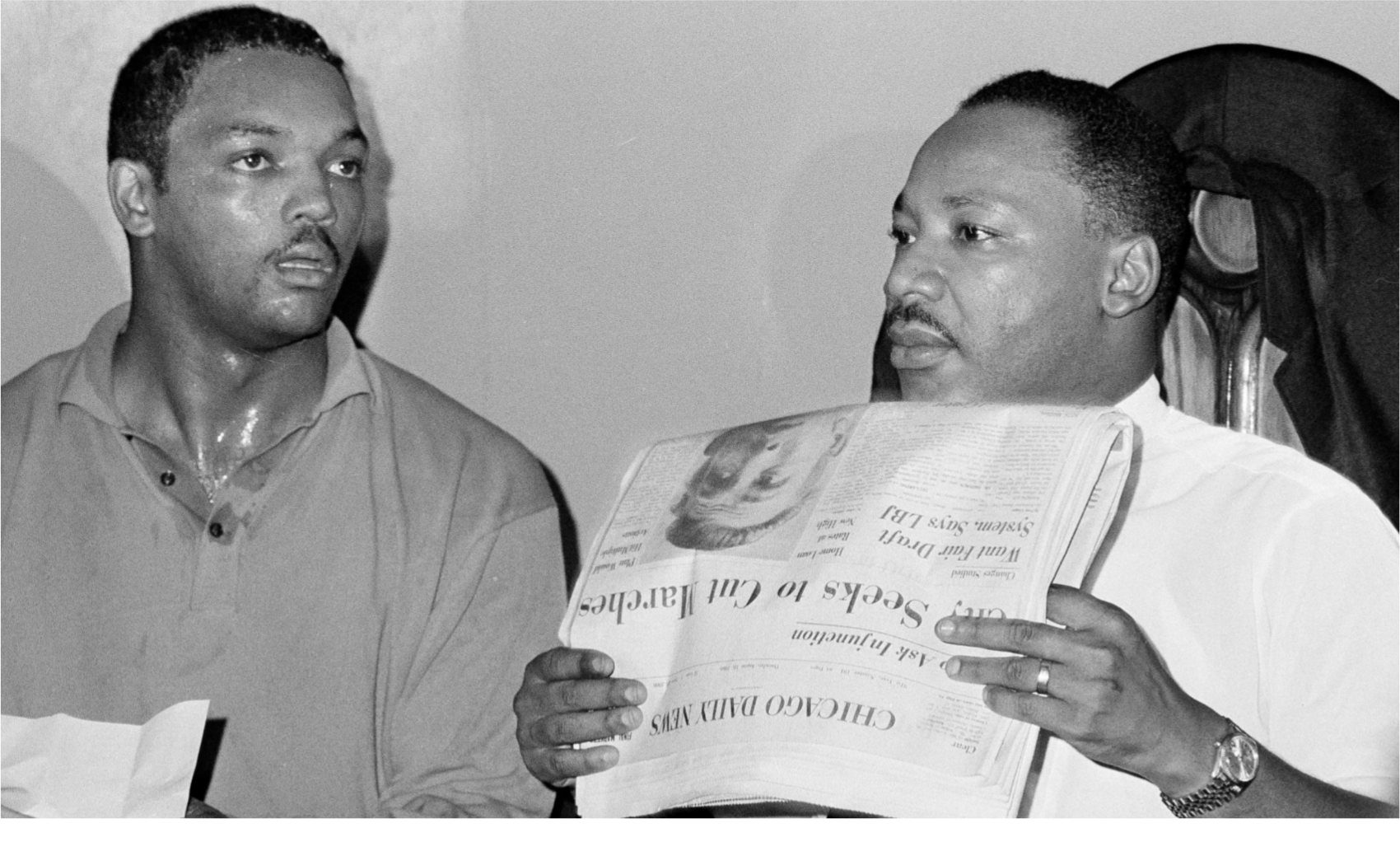(ThyBlackMan.com) Few artists have defined the blues as profoundly as B.B. King. His soulful voice, lyrical storytelling, and, of course, the wailing, emotive guitar licks of his beloved Gibson ES-355, affectionately named “Lucille,” have made him an immortal figure in the world of blues. King was not just a musician; he was a bridge between generations, a mentor to rock legends, and a shining beacon of Black musical excellence. His music remains as powerful today as it was when it was first recorded, making it essential listening for Black History Month in February 2025.
Below, we explore ten of B.B. King’s most significant songs, breaking down what makes them masterpieces and why they remain relevant in 2025.

1. The Thrill Is Gone (1969)
Why You Must Listen: Arguably B.B. King’s most famous song, “The Thrill Is Gone” is a haunting ballad of love lost. The track’s lush string arrangement, combined with King’s searing guitar work and heartfelt vocals, made it a crossover hit, introducing the blues to a wider audience. The song’s slow, moody pacing allows the listener to fully absorb the depth of King’s despair, making it one of the most emotionally evocative tracks in blues history.
Beyond its musical impact, “The Thrill Is Gone” showcases B.B. King’s ability to translate deep emotional pain into sonic beauty. His delivery is raw and honest, resonating with anyone who has ever experienced heartbreak. Its influence has spanned generations, inspiring musicians across genres, from rock to R&B, to incorporate blues elements into their work.
Why It Matters in 2025: Decades later, “The Thrill Is Gone” remains one of the most emotionally charged blues songs ever recorded. In an era where digital production often overshadows raw musicianship, the song serves as a masterclass in restraint and soul. It continues to remind listeners of the importance of genuine emotion in music, something that modern-day artists often struggle to capture.
2. Lucille (1968)
Why You Must Listen: Named after King’s famous guitar, “Lucille” is an autobiographical song that tells the story of how his guitar got its name. The song is essentially a love letter to his instrument, emphasizing the intimate relationship between a bluesman and his guitar. Through its spoken-word introduction and smooth guitar phrases, King’s adoration for Lucille is evident, turning the song into a deeply personal and revealing piece of work.
What makes “Lucille” even more special is its ability to communicate the deep connection between a musician and their tool of expression. King’s signature vibrato, expressive string bends, and articulate phrasing give the song an unmatched character. It is a reminder that the blues is not just about playing notes but about feeling every note played.
Why It Matters in 2025: “Lucille” teaches modern guitarists that their instrument is more than just a tool—it’s a voice, an extension of their soul. The song continues to be a touchstone for blues players worldwide, serving as an example of how passion and technique can merge to create something timeless.
3. Sweet Little Angel (1956)
Why You Must Listen: This slow blues tune showcases B.B. King’s ability to stretch emotions over a simple 12-bar blues structure. His buttery smooth guitar tone and aching vocals create an atmosphere of deep longing and devotion. The song’s pacing allows each note to sink in, proving that sometimes, less is more. King’s guitar weeps throughout the track, making it an unforgettable listening experience.
Listeners are drawn into “Sweet Little Angel” not just for its melody but for the sheer passion in King’s voice. His guitar playing mimics the human voice, singing and crying in tandem with the lyrics. It’s a piece that every blues lover should hear at least once to truly understand the depth of the genre’s emotional weight.
Why It Matters in 2025: In an age of short attention spans and quick digital hits, “Sweet Little Angel” reminds listeners of the power of patience and nuance in music. It stands as a beacon of what the blues is truly about—storytelling, feeling, and a deep connection between artist and audience.
4. Rock Me Baby (1964)
Why You Must Listen: “Rock Me Baby” is one of the most covered blues songs in history, but no one delivers it quite like King. With a swaggering rhythm and fiery guitar licks, the song is both seductive and commanding. The way King delivers his lines, alternating between smooth crooning and fiery exclamations, adds layers of depth to the song.
This track is an essential blues jam because it showcases King’s ability to make a straightforward blues progression sound fresh and engaging. The rhythm section provides a steady groove while his guitar wails and pleads, proving that the simplest blues songs can be the most powerful when played with genuine passion.
Why It Matters in 2025: Its timeless groove continues to inspire blues, rock, and even R&B artists. The song remains a staple in live performances worldwide, ensuring that King’s spirit lives on through each new generation of musicians.
5. Every Day I Have the Blues (1955)
Why You Must Listen: An upbeat contrast to some of King’s more melancholic works, this song became one of his signature tunes. His rendition of “Every Day I Have the Blues” electrified audiences with its high-energy call-and-response dynamic. The song’s jump-blues tempo keeps it engaging, and King’s crisp guitar lines elevate it to a new level of expressiveness.
King’s voice in this track carries an infectious enthusiasm, making it one of the few blues songs that can lift spirits while still telling a story of hardship. His performance here proves that the blues isn’t just about sadness—it’s about resilience and perseverance.
Why It Matters in 2025: Even in 2025, the blues remains a lifeline for those facing hardship, and this song is a reminder that resilience and expression are key to survival. It’s a tune that continues to resonate with anyone navigating life’s struggles, proving that the blues is more relevant than ever.
6. Why I Sing the Blues (1969)
Why You Must Listen: This song serves as both a musical autobiography and a social commentary. King recounts the struggles Black Americans have endured, delivering raw, emotional verses over a swinging blues backdrop. His passionate vocals and expressive guitar work make this a powerful anthem of resilience and truth.
The storytelling in this song allows listeners to experience the hardship and perseverance that define the blues. King doesn’t just sing about struggle—he immerses his audience in it, making them feel every note and lyric. The blend of personal narrative and cultural history makes “Why I Sing the Blues” one of the most essential songs in his catalog.
Why It Matters in 2025: Even today, “Why I Sing the Blues” remains a poignant reflection of racial and economic struggles. It serves as a reminder that the blues is more than music—it’s a historical and cultural statement.
7. Hummingbird (1970)
Why You Must Listen: King merges blues and soul with orchestral elements in “Hummingbird,” giving the song a distinct sound that stands out in his catalog. His vocal performance is smooth yet powerful, and the lyrics are poetic and heartfelt.
The combination of blues guitar and orchestration creates an emotional depth that feels almost cinematic. The song’s gentle build-up to an explosive climax showcases King’s mastery of dynamics, making “Hummingbird” a must-listen for those who appreciate layered, intricate blues compositions.
Why It Matters in 2025: The fusion of blues with other genres remains relevant in today’s music industry. “Hummingbird” is a testament to King’s ability to evolve and push the blues into new, exciting directions.
8. Chains and Things (1970)
Why You Must Listen: A deeply introspective song, “Chains and Things” explores feelings of frustration, depression, and being trapped in life’s struggles. King’s slow, aching guitar lines amplify the song’s heavy emotional weight.
Listeners are drawn to this song for its raw honesty and soul-bearing lyrics. King’s voice carries the weight of lived experiences, making “Chains and Things” an anthem for those grappling with personal hardships. The expressive guitar work mirrors his sorrow, pulling the audience into the depths of his emotions.
Why It Matters in 2025: Mental health awareness has gained prominence, and this song resonates deeply with anyone feeling burdened by life’s challenges. King’s words and melodies provide solace and understanding.
9. Paying the Cost to Be the Boss (1968)
Why You Must Listen: A bold and brash song, “Paying the Cost to Be the Boss” sees King asserting his authority and independence. His stinging guitar riffs and confident vocals create an infectious groove that makes this track stand out.
This track is a declaration of self-worth and resilience. King’s vocals and commanding presence showcase a different side of his artistry—one that exudes confidence and empowerment. It’s a reminder that blues music can be both uplifting and defiant, making it just as powerful today as it was when first recorded.
Why It Matters in 2025: The song’s message of self-empowerment is timeless, making it just as inspiring today as it was in the 1960s.
10. Three O’Clock Blues (1951)
Why You Must Listen: This song marked King’s first hit and helped establish his career. The slow, mournful blues arrangement, paired with King’s expressive vocals and intricate guitar work, make it a quintessential example of his early style.
The stripped-down production allows King’s emotional depth to shine through. The authenticity in his voice and the aching quality of his guitar make “Three O’Clock Blues” a timeless piece of blues history, ensuring its place among the greatest recordings of the genre.
Why It Matters in 2025: “Three O’Clock Blues” is a history lesson in itself, showcasing the roots of modern blues. It remains essential listening for anyone wanting to understand the genre’s foundations.
B.B. King’s music is not just a relic of the past; it is a living, breathing force that continues to inspire and move listeners today. Whether through the aching cries of “The Thrill Is Gone” or the defiant stance of “Paying the Cost to Be the Boss,” King’s legacy remains untouched. In February 2025, as we celebrate Black History Month, let’s remember and honor the King of the Blues by listening to his timeless masterpieces—because the blues is not just history; it is life itself.
Staff Writer; Jamar Jackson
This brother has a passion for sports, poetry and music. One may contact him at; JJackson@ThyBlackMan.com.

















Leave a Reply